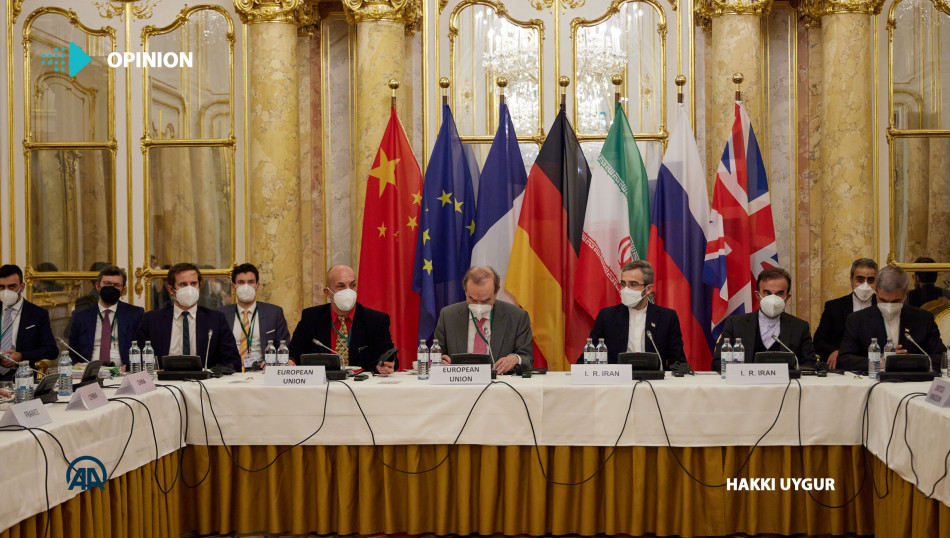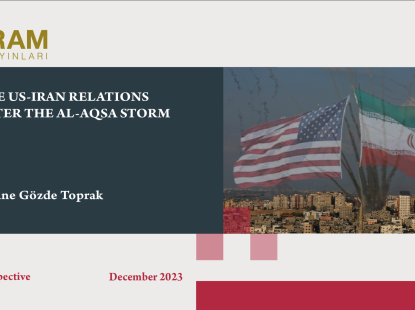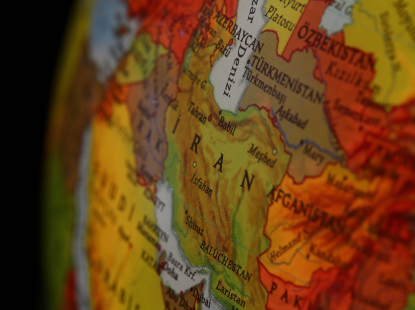How Will JCPOA 2 Affect Iranian Regional Policies?
The Joint Comprehensive Plan of Action (JCPOA, Nuclear Deal), signed in 2015 among P5+1 countries to monitor Iranian nuclear activities, started to become dysfunctional after the presidential election of 2016, which brought Trump to the office and even lost its meaning after the US’ total withdrawal in May 2018. Iran began to suspend its obligations incrementally and augmented its nuclear activities both in quality and quantity after the parties of the Deal, besides the US, did not fulfill their economic commitments after the Deal. Afterward, the attacks and sabotages on strategic actors and institutions, primally the assassination of Qasem Soleimani, both within and outside of Iran executed by the US and Israel, failed to prevent Tehran from enhancing its nuclear activities and technological improvements over ballistic missiles frequently articulated by various milieus.
With the victory of democratic Joe Biden in the 2020 presidential elections in the region, the most comfort felt by Iran may argue due to the end of the maximum pressure policy crippled the Iranian economy, primally applied by the Trump government. Biden did not lift the sanctions yet but tolerated the exportation of its prior revenue resources, especially the oil exports, and the foreign trade substantially increased, which nearly stopped after the pandemic. Moreover, with overseeing the regional developments, the convergence process supported feverishly by Trump between Israel and the Gulf countries lost its most important sponsor.
Even Biden did not make a prompt return to the 2015 Deal, with the internal balances and Ebrahim Raisi’s Presidentship accelerating a new round of negotiation held in Vienna that came to an end in February. The technical details remain unknown due to the lack of a final consensus but the obvious captions of the negotiation are formed by uranium enrichment and the limits of fuel stocks. In return, Iran desires to execute foreign trade contentedly, especially its oil exports, and has no problem with currency transactions. As it is known, countries like Korea, Japan, and Iraq are in more than 10 billion dollars of debt to lend to Iran, but the sanction on the banking aggravates the transfer of the currency. The transaction of those assets carries importance for Raisi to comfort its suffering economy, intensified by the pandemic. The mentioned relief on the economy is crucial for materializing future projections like a constitutional amendment desired by the conservatives and electing a new supreme leader.
The Vienna agreement will affect domestic power balances, but the crucial impact can be on the regional policies. Both Trump and on his first six months in the office, Biden insisted on bringing Iranian regional policies and ballistic missile technology to the table. Nevertheless, Iran rejected negotiating on those matters, and today the US insistence no longer remains. The Biden government embraced a "solve it on your own" approach to the countries of the region. Even though Saudi Arabia initiated talks with Iran through Baghdad, it did not make any progress currently. The ruptured relations since the execution of Shi’a cleric Sheikh Nimr al-Nimr became even more complicated with the Yemeni War and turned into a military polarization expanded on to the UAE and Bahrain on the one side and Hezbollah, Ansar Allah, and the proxies of Iran in Iraq on the other one. Iran’s concrete position and intensified missile attacks towards both Saudi Arabia and UAE can be interpreted as a potential Iranian regional expansion after a possible agreement.
The UAE, being conscious of the new era and in a more dynamic and elastic manner of the new era, is in a rapprochement effort with Türkiye and Iran to reduce the cost of the Abraham Accords signed with Israel. There is a relative improvement in Turkish relations but neither UAE nor Saudi Arabia did not receive any goodwill gesture from Iran. On the contrary, the increasing missile and drone attacks indicate Iran will stay concrete both on the Yemeni War and the relationships with Israel. This explains Iran's refusal on negotiating its regional policies with external actors. Tehran used the JCPOA to strengthen its presence in Syria and Iraq and transacted a critical amount of supply to the region, which will increase its economic support to its proxies despite the domestic problems. Along with the assassination of Qasem Soleimani and implemented heavy sanctions, Iran can desire to compensate for its lack of penetration and loss in Iraq. Furthermore, to enhance its domain lost to Russia, Iran can economically increase its aid to Assad's regime too.
Consequently, Israeli opposition and clarified internal balances after the congress election will take place in November along with Iran’s very clear position to become a nuclear state, preventing the Vienna talks to become a long-termed, comprehensive, and permanent agreement. Either way, it is foreseen that Iran will use that easement by increasing its pressure on the weak actors to achieve its regional goals while calculating global (US-China) and continental power struggle (UK-Russia) as its hardenings. Nevertheless, given the latest developments on Iran’s northern and eastern fronts, the new era with multiple actors to face would bring new challenges to Tehran.
This article was first published in 12.02.2022 at Sabah.











